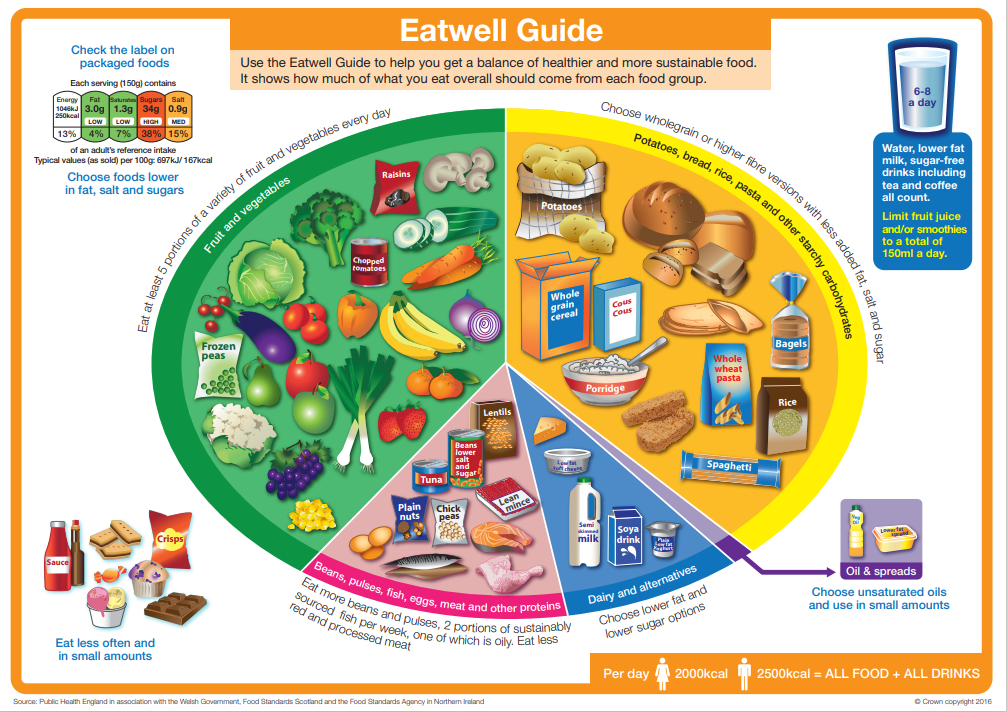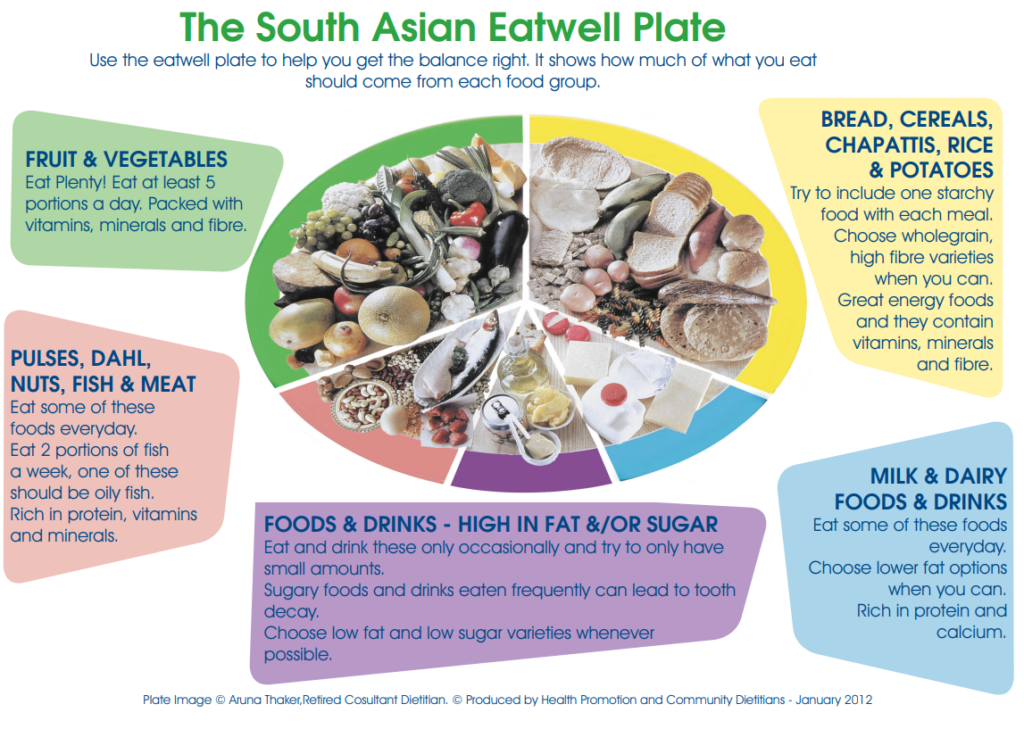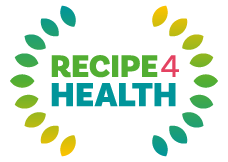Visit NHS 111 if you have an urgent medical problem and you’re not sure what to do.
Click HereHelp With Healthy Eating In Blackburn
If you’re looking for help with healthy eating in Blackburn, this guide is for you!
Maintaining a healthy, balanced diet is crucial for an individual’s physical and mental health and overall wellbeing. A healthy diet can help prevent against chronic diseases, such as obesity, type 2 diabetes and certain cancers, as well as improve immunity.
However, we know that a healthy diet doesn’t looks the same for everybody – our food choices are influenced by a number of factors, including income, the environment, culture, cooking skills and dietary requirements. In a diverse community like Blackburn with Darwen, it’s important for us to give appropriate healthy eating advice to suit different cultural preferences and dietary needs. This guide will provide you with valuable information and resources to help you lead a healthier lifestyle.
As part of Be Well BwD, we provide information and resources on both the Eat Well Guide and Recipe 4 Health. Let’s explore those campaigns here in our guide.
Eat Well Guide
The Government Eatwell Guide shows how much of what we eat overall should come from each food group to achieve a healthy, balanced diet.

You do not need to achieve this balance with every meal, but try to get the balance right over a day or even a week.
- Eat at least 5 portions of a variety of fruit and vegetables a day
- Base meals on potatoes, bread, rice, pasta or other starchy carbohydrates
- Eat some beans, pulses, fish, eggs, meat and other protein foods
- Have some dairy or dairy alternatives (such as soya drinks and yoghurts)
- Choose unsaturated oils and spreads, and eat in small amounts
- Eat foods high in fat, salt and sugar less often and in small amounts
- Drink plenty of fluids – the government recommends 6 to 8 cups or glasses a day (this includes water, lower-fat milk, lower-sugar or sugar-free drinks, tea, and coffee. Fruit juices and smoothies contain sugars that can damage oral health, so should be limited)
On average, women should have around 2,000 calories a day, with men needing to consume around 2,500 calories a day.
The Eat Well Guide applies to most people, despite our weight, dietary preferences or our ethnicity. However, it is important to acknowledge that 37% of Blackburn with Darwen is Southern Asian. Due to this, the Eatwell Guide may not be appropriate for a large proportion of our community.
Eating Well: Southern Asian Community In Blackburn With Darwen
Many traditional South Asian dishes can be made healthier with a few changes such as using lean meats like chicken or turkey, introducing plant-based proteins like lentils, chickpeas and pulses and adding more vegetables to dishes.
Reducing fat in curries, such as cooking with less oil and replacing full fat creams with low fat versions or yoghurt, can improve the nutrient composition of the dish, without compromising on taste.
Try to choose whole wheat roti (chapati) over white flour versions and brown rice instead of white. These options provide more fibre and nutrients than white varieties.
Include a variety of vegetables in dishes, like leafy greens, okra, cauliflower, onions, garlic, bell peppers and carrots to increase your vitamins, minerals and fibre. Remember, lentils and pulses also count towards your 5 a day.
Spices play an important role in the rich flavours in Southern Asian dishes. Not only do they add delicious flavours, but they can also incorporate additional health benefits to meals.
- Turmeric is a staple in many dishes and is anti-inflammatory.
- Cumin aids digestion and can be used to season a variety of dishes, from lentil soups to roasted vegetables.
- Cardamom is a popular spice and just half a teaspoon can help to lower blood pressure.
Small, simple changes can make your favourite dish a little bit healthier – and you may even prefer it! Healthy eating is not about restriction, but about making better choices that contribute to your overall well-being.

Recipe 4 Health
Recipe 4 Health is a local healthier catering award. Food businesses are promoted that focus on healthier eating, environmental issues and social responsibility.
Food businesses (cafes, takeaways, restaurants, schools, hospitals etc) are able to apply for the Recipe 4 Health award to showcase their commitment to providing healthy options to their community.

Tips For Healthy Eating In Blackburn
- Plan your meals: Planning meals for the week ahead means you are more likely to avoid impulse purchases of less healthy options.
- Shop mindfully: Before you go food shopping, make a list for items you definitely need, and try to stick to it.
- Cook at home: Cooking at home, as much as possible means you have control over the ingredients you use and therefore how much of the ‘Eat Well’ plate you incorporate. Foods eaten outside of the home, from takeaways and fast-food outlets, tend to be high in fat, salt and sugar.
- Stay hydrated: Drink plenty of water throughout the day. Water is essential for cognitive function, digestion and overall health.
- Mindful eating: Pay attention to when you feel hungry and full
Getting Support In Blackburn
If you’re looking for specific support when it comes to healthy eating, Be Well BwD has a wide range of services on offer to help the local community. Our services can help provide advice based on your individual needs and health goals.
By using local resources, making choices guided by Eat Well and knowing where Recipe 4 Health businesses are in your local area, you can improve your health and enjoy the benefits of a balanced diet.
If you would like more information about the resources on offer to the Blackburn with Darwen area, that promote healthy eating, feel free to contact a member of the Be Well BwD team today.
You can reach us by calling 01254 585570 or emailing publichealthadmin@blackburn.gov.uk.
